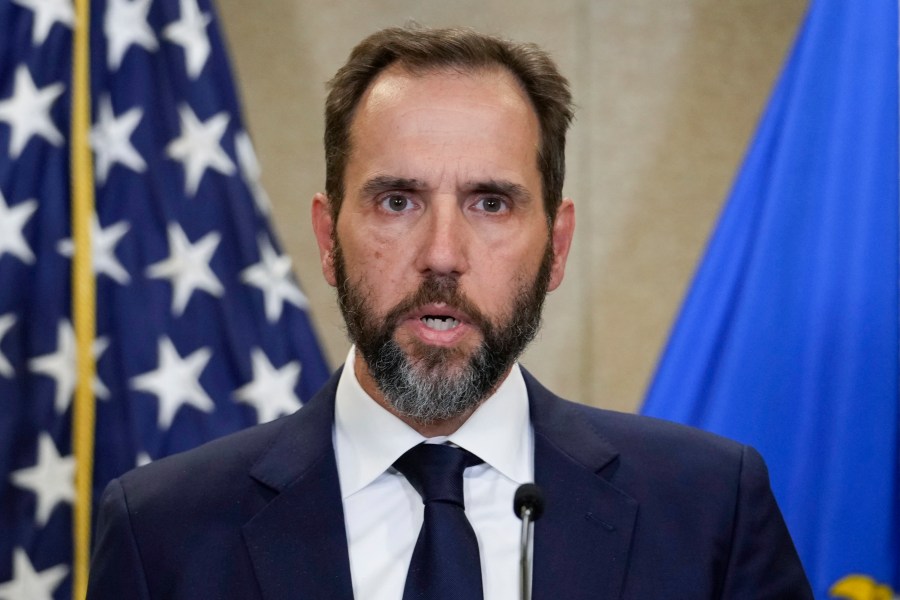Supreme Court gives Smith one week to respond to Trump on immunity
The Supreme Court on Tuesday gave special counsel Jack Smith one week to respond to former President Trump’s request to keep his federal Jan. 6 trial on hold as he appeals his immunity claims.
In a brief order, the high court ordered Smith to respond by Tuesday, Feb. 20, not a particularly speedy schedule.
Trump filed an emergency motion Monday urging the justices to block a lower ruling that he doesn’t have presidential immunity from the indictment, an argument that has enabled Trump to delay his trial date as the appeals process proceeds.
The Supreme Court’s forthcoming decision on Trump’s motion is poised to have outsized influence on whether the former president’s trial will take place before this year’s elections. The trial was originally scheduled for March 4 but was shelved as Trump appealed the immunity issue.
Smith has aimed to take Trump to trial quickly to avoid the possibility of Trump first returning to the White House and then pardoning himself or ordering his Justice Department to drop the case.

FILE – Special counsel Jack Smith speaks to the media about an indictment of former President Donald Trump, Aug. 1, 2023, at an office of the Department of Justice in Washington. Trump’s lawyers are pressing to haveSmith’s team held in contempt. The Republican former president’s lawyers said Thursday, Jan. 4, 2024, prosecutors have taken steps to advance the 2020 election interference case against him in violation of a judge’s order that put the case on hold. (AP Photo/J. Scott Applewhite, File)
By next Tuesday, the special counsel will now have to respond to Trump’s latest tactic: requesting his trial be kept on hold until he can ask the full District of Columbia Circuit Court of Appeals to review his immunity claims, and then, if needed, the Supreme Court.
The timeline for Smith’s response isn’t fast compared to how the Supreme Court has handled some recent emergency applications, however, a signal the justices aren’t viewing Trump’s case with particular urgency.
Last month, when an anti-affirmative action group challenged the U.S. Military Academy at West Point’s race-conscious admissions policies on the Supreme Court’s emergency docket, the court ordered the school to respond within four days.
Weeks earlier, the court in an emergency case involving Michigan’s state legislative maps set the response to be due six days after the application was originally filed.
Top stories from The Hill
- Here are the Senate Republicans who voted for the Ukraine package
- Speaker Johnson rebuffs Senate Ukraine package
- Senate Dems privately fear Biden’s age could cost him White House
- Senate passes Ukraine funding in predawn vote
In Trump’s case, the court’s order gives Smith a longer period of eight days to respond after Trump’s original filing, although that window also includes the President’s Day holiday weekend.
Smith could also move with more haste and respond earlier than the deadline.
Trump is charged in the case with four federal felonies that accuse him of conspiring to subvert the 2020 election results. It is one of four criminal cases he faces, and Trump pleaded not guilty to all of the charges he faces.
Copyright 2023 Nexstar Media Inc. All rights reserved. This material may not be published, broadcast, rewritten, or redistributed.

